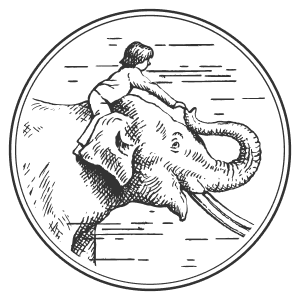In 2024, the Pairi Daiza Foundation Rescue Centre took in 529 animals, a dramatic decrease of 23% compared to 2023, when 685 animals were cared for.
In 2024, the new arrivals are distributed as follows:
- 317 yellow/red-eared sliders (Trachemys scripta)
- 154 turtles of other species
- 19 lizards
- 37 snakes
- 2 spectacled caimans
This encouraging trend may indicate growing awareness about the purchase and abandonment of exotic animals.
The 16% decrease in the number of yellow/red-eared sliders (Trachemys scripta) – an invasive species banned in Europe since 2022 – could reflect the impact of this regulation. By limiting the sale and breeding of these animals, European authorities have likely contributed to slowing their spread and reducing the number of abandonments.
Despite this positive development, abandonment remains the majority among the new arrivals. In 2024, 508 animals, nearly 92%, were abandoned by their owners. Additionally, 19 animals were seized by Belgian authorities (FOD CITES, SPW Animal Welfare, police), and 2 – a corn snake and a boa – were found on public roads.
/--/uploads/2025/01/Capture-decran-2025-01-20-a-12.59.42.png)
Turtles don't eat just lettuce!
Although the figures for 2024 show a positive development, the practices remain far from ideal. The Pairi Daiza Foundation Rescue Centre reminds that adopting an animal, especially a reptile or amphibian, carries a huge responsibility. These animals require specific care and tailored living conditions.
Once again this year, dozens of abandoned land turtles, taken in by the centre, showed irreversible deformations in their shells. These abnormalities are often caused by improper diets and a lack of exposure to UV rays. They lead to pain and can cause premature death, though they could easily have been avoided.
“The shell of a land turtle, like that of the Greek tortoise, is a true reflection of its health. A balanced diet, which doesn’t consist solely of lettuce, and sufficient exposure to sunlight or UVA and UVB lamps are essential. These rays allow turtles to synthesize vitamin D, which is crucial for calcium absorption and proper shell development,” says Pascal Dortu, head of the Foundation’s Rescue Centre.
Through its actions, the Rescue Centre will continue to raise awareness among the public about the importance of making a well-considered decision before adopting such an animal. Acquiring an animal means committing to providing it with living conditions that meet its needs.
The Pairi Daiza Foundation rescue centre
Since 2003, Pairi Daiza, in collaboration with Pascal Dortu, has established a rescue and rehabilitation centre for reptiles, turtles, and other exotic pets (NAC) that have been abandoned by private individuals or found by authorities. This work in rescue and awareness has been ongoing for more than 20 years. Since its founding, hundreds of animals have been entrusted to the rescue centre each year.
After a mandatory quarantine period, necessary to prevent the spread of any contagious diseases, reptiles and amphibians are carefully treated and adapted to their new living conditions. Generally, it is rarely possible to reintroduce seized or abandoned animals into their natural habitat.
However, animals that belong to a threatened species can participate in a conservation programme for their species.
Regarding turtles, the rescue centre houses a large number of species that have been classified by the IUCN (International Union for Conservation of Nature) as follows:
- 11 species critically endangered (CR)
- 8 species endangered (EN)
- 8 species vulnerable to extinction (VU)
These efforts highlight the crucial importance of conservation, with each protected species contributing to the fight against the alarming decline of biodiversity.

/--/uploads/2023/12/app-store.png)
/--/uploads/2024/02/google-play.png)
/--/uploads/2025/02/SITE_Header-2048x1071_Mix-EN.jpg)

/--/uploads/2025/01/Capture-decran-2025-01-20-a-13.08.27.png)
/--/uploads/2025/03/Capture-decran-2025-03-18-a-11.25.21.png)
/--/uploads/2025/03/Capture-decran-2025-03-06-a-10.38.53.png)
/--/uploads/2025/03/Small-MI4A9803.jpg)
/--/uploads/2024/02/app-store.png)